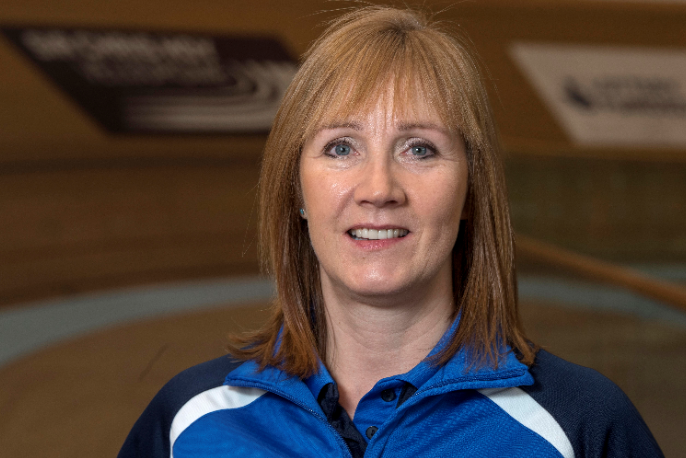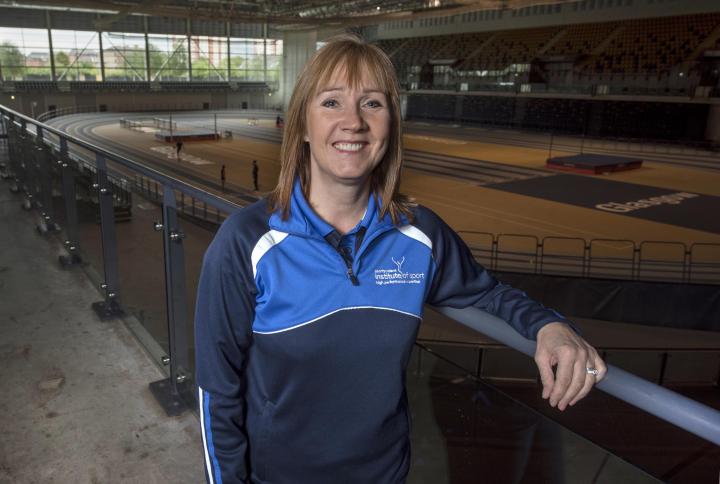Q & A with Mandy More, Physiotherapist at Sport Scotland
Mandy is a recent online graduate of the MSc Clinical Management of Pain. She chats to us about how the masters has helped her work with Scotland's top athletes and what she liked best about online learning.
1. First off, please tell us a bit about yourself and your career so far.

I am a Chartered Physiotherapist and have worked full time in the High Performance sport department at Sportscotland for 11 years. This is a government-funded organisation that supports our top athletes in their quest for glory on the world stage. This can take them from competing at National level right up to Olympic Games and World Championships.
It requires dedication and effective teamwork from all members of the athlete’s support team, which includes physiotherapists, sport, strength and conditioning coaches, psychologists and performance analysts (to name a few!).
I manage a team of physiotherapists locally in Glasgow and have responsibility for the physiotherapy service provision in Grampian and Tayside and Fife. I have just finished an 18 month spell leading the physio service for Track and Field athletes and have currently resumed my lead role with Boxing.
Prior to this, I worked part time in performance sports as a contractor, had a private practice in a tennis club and also provided occupational physiotherapy to Strathclyde Police and Fire brigade. Before that I worked in the NHS.
2. Why did you decide to study an online masters at the University of Edinburgh?
Pain management has always fascinated me, following a lecture I heard back in the Nineties by Louis Gifford, a pioneering physiotherapist who was interested in pain. I followed the advances in practice over the next 30 years and in 2016 I decided that the time was right to formalise my learning.
The online MSc was a perfect fit to my busy work schedule as travelling with teams is an integral part of the job, therefore attendance at class was not an option. The online MSc Clinical Management of Pain course at the University of Edinburgh offered an excellent PGCert in pain management, and at the start of this journey that was all I intended doing!
The online MSc was a perfect fit to my busy work schedule as travelling with teams is an integral part of the job, therefore attendance at class was not an option.
3. What did you enjoy most about the programme?
The interaction with students from all over the world and from different disciplines was something I had never considered would happen. Reading the varied perspectives they had on pain management was fascinating and gave me a far wider understanding of what pain means to different people....and even animals too, as there was a vet in my cohort! I also enjoyed getting lost down the rabbit holes of literature searches - the last time I had to do that there was no such thing as the internet and online libraries! Only stuffy bookshelves where you could never find anything you were looking for and it cost a fortune to photocopy anything you did.
I also enjoyed the fact that the latter assignments in years 2 and 3 were practical tasks that provided materials that could be used in your place of work. I produced a Post -Concussion Syndrome advice leaflet and an online Pain in Sport course that have been used regularly by colleagues.
4. How has the programme impacted your career?
I have become far more confident at advocating best practice in managing injuries, especially ones that will require the athlete to miss several months of training. I have introduced a process whereby the sports psychologist and performance lifestyle advisors meet with the athletes prior to surgery or at the very beginning of rehabilitation, to ensure the psychological and social impact of the injury is normalised. We now employ a number of measures to screen for athletes who may be at risk of developing maladaptive behaviours in response to pain, as previously we relied on our knowledge of them as people and only reacted to adverse behaviours when they arose. This often resulted in further time loss from training and referral to clinical psychology. We hope to reduce the risk of this happening and provide athletes with a comprehensive understanding of what to expect as they make their return to top level competition.
My final project will feature in this year’s Charted Society of Physiotherapist’s poster session and the write up is currently being sent for peer review for publication, something I would never have envisioned when I started the course.

5. Who would you recommend the programme to and why?
I would thoroughly recommend the masters programme to any health professional! After the first year you can build the modules to suit your own interests and pace of learning. At the start, I never considered how useful the headache course would be, but it provided a great platform to explore concussion in sport.
Be prepared to discover aspects of study habits you never knew you had. Who would have thought I could sit still for hours on end and be excited by on-line reference managers? Being a “mature” student had its pros and cons. There was a steep learning curve in the first semester navigating the on-line environment and technical requirements, but after that it was fantastic to be able to study and interact at times that suited my schedule. I even managed to write assignments and interact on the weekly chat rooms from forests in Finland with cross country skiers and sunny beaches in Australia at a Multi -Sport Games.
Related Links
Online Masters in medicine, vet medicine and life sciences
The University of Edinburgh Online Learning homepage
MSc Clinical Management of Pain programme


